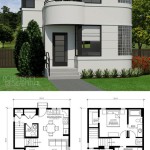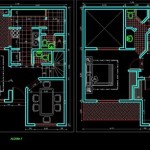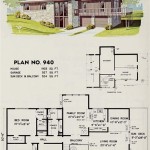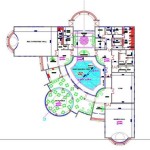Roman Villa House Plans: An Insight into the Architectural Masterpieces
Roman villas were not merely houses; they were sprawling estates that served as centers of power, wealth, and agricultural production. The design and layout of these villas reflected the sophisticated architectural prowess of the Romans, and their house plans continue to inspire architects and historians alike.
1. The Atrium
The atrium was the central hub of a Roman villa and the heart of family life. It was a large, open room with a rectangular pool called the impluvium in the center, which collected rainwater. Surrounding the impluvium were columns or pillars that supported the roof, creating an enclosed space that was both airy and elegant.
2. The Peristyle
Adjacent to the atrium, the peristyle was a courtyard surrounded by covered walkways supported by columns. It served as an outdoor living space, providing shelter from the elements while allowing for natural light and ventilation. Gardens, fountains, and sculptures often adorned the peristyle, creating a tranquil and inviting atmosphere.
3. The Tablinum
The tablinum was a formal reception room that connected the atrium and the peristyle. It was used for receiving guests, conducting business, and displaying important artifacts. The tablinum typically featured elaborate decorations, including frescoes, mosaics, and marble cladding.
4. The Cubicula and Triclinia
The cubicula were private bedrooms and the triclinia were dining rooms. They were usually located around the peristyle and varied in size and decoration. The cubicula were typically small and sparsely furnished, while the triclinia were more spacious and featured elaborate dining couches, tables, and wall paintings.
5. The Baths
Roman villas often incorporated extensive bathhouses, known as thermae. These baths consisted of a series of rooms, each maintained at a different temperature. The frigidarium was a cold room, followed by the tepidarium (warm room) and the caldarium (hot room). The baths served both hygienic and social purposes, providing a place for relaxation, socializing, and health treatments.
6. The Service Quarters
In addition to the main living quarters, Roman villas had dedicated service quarters. These quarters included kitchens, storage rooms, workshops, and slave quarters. They were typically located in separate buildings or in the basement of the main house, keeping the private and service areas distinct.
7. The Exterior
Roman villas were often characterized by their grand exterior facades. The entrance to the villa was typically marked by an imposing entrance gate, adorned with elaborate carvings and sculptures. The walls were often made of brick or stone, and the roofs were covered with tiles. Villas were often surrounded by extensive gardens, orchards, and vineyards, providing a self-sustainable environment.
In conclusion, Roman villa house plans were meticulously designed and executed, reflecting the wealth, power, and architectural ingenuity of the Romans. From the central atrium to the luxurious baths, these villas showcased a sophisticated blend of functionality, elegance, and grandeur. Their enduring legacy continues to inspire architects and homeowners alike, serving as a testament to the enduring legacy of Roman civilization.

Roman Domestic Architecture Domus Article Khan Academy

Plan Of A Pompeian House Roman Courtyard Plans Atrium

Image Result For Roman Villa Floor Plan House Ancient Houses Courtyard Plans

Pin By Rebecca Koch On Ancient Rome Roman Bath House Floor Plans

16 Ancient Roman Courtyard House Ideas Romans Architecture
Stephenson Late Roman Villas And Cognitive Science Architectural Histories

Roman House

РИМ Villa Of The Mysteries Pompeii Roman House Ancient Houses Architecture

28 Floor Plans Roman Courtyard Ideas How To Plan House
Plan And Elevation Of A Roman Villa Nypl Digital Collections








